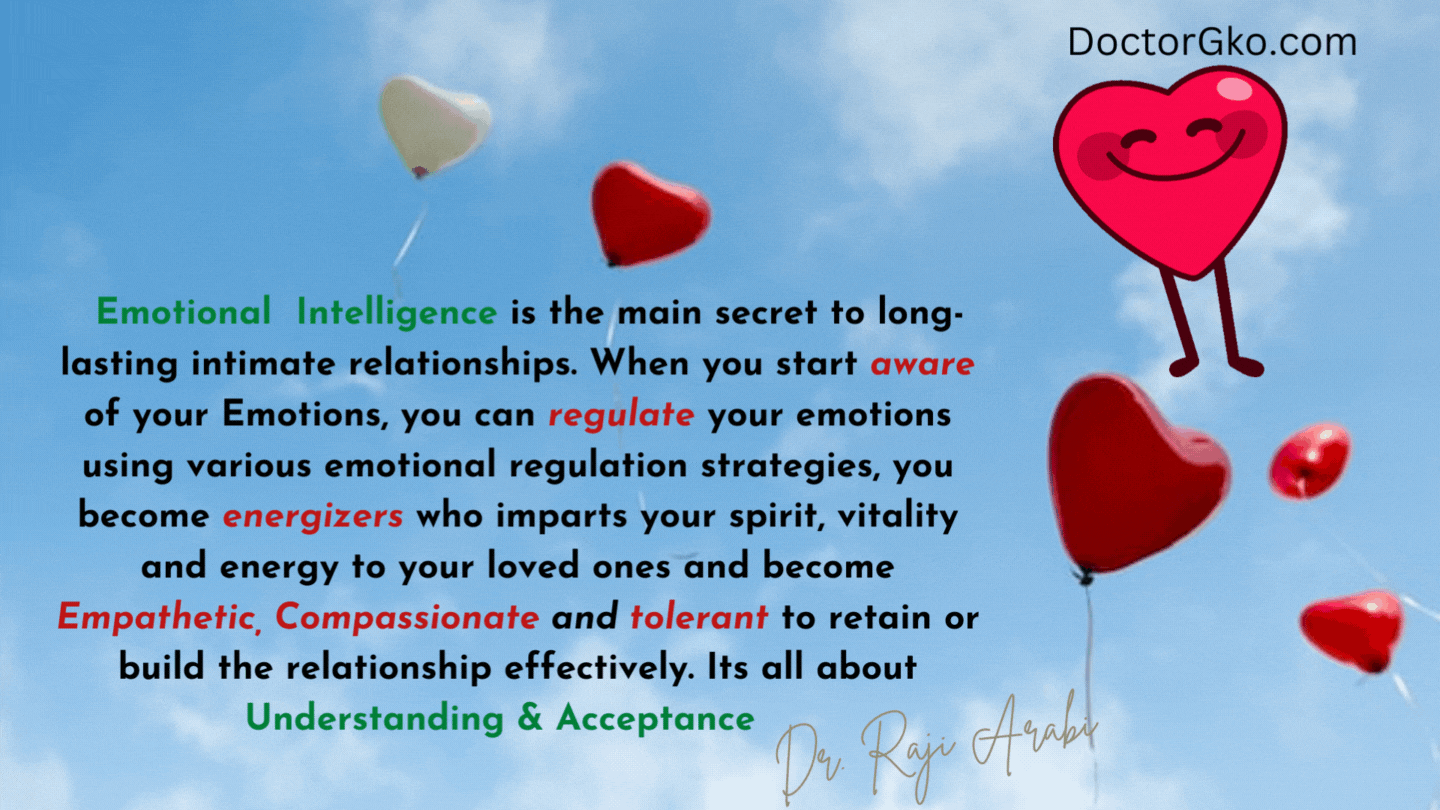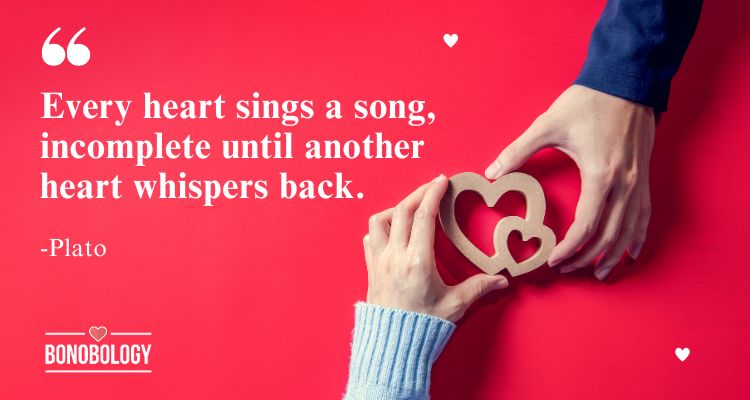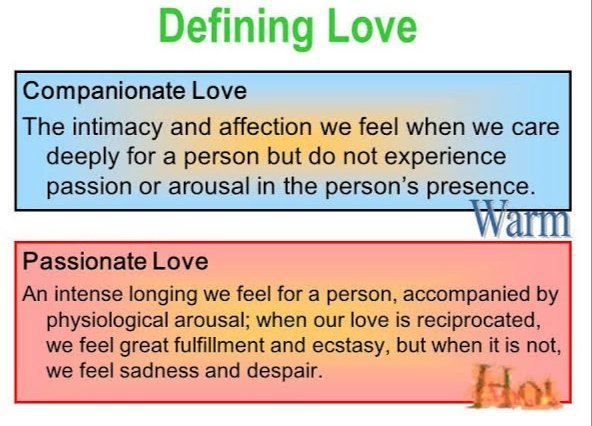Love in a relationship signifies a deep connection and commitment between partners. It encompasses mutual respect, trust, and emotional support.
Understanding love’s role in a partnership is essential for nurturing a healthy bond. It goes beyond mere attraction to include dedication and the willingness to work through challenges together. Love acts as the foundation for a strong and enduring relationship.
It’s a blend of care, understanding, and the unspoken bond that partners share. This profound affection is about accepting each other’s flaws and celebrating successes together. It’s the glue that holds a couple together during life’s ups and downs, providing a sense of security and belonging. Embracing love in its true form can lead to a fulfilling and long-lasting relationship. It’s an investment of time, effort, and emotion that enriches the lives of those involved.

Credit: www.healthypathtolove.com
The Essence Of Love In Partnerships
The Essence of Love in Partnerships transcends mere verbal exchanges. A profound emotional connection is the core of love. This bond is felt deeply by partners through shared experiences, empathy, and unwavering support. It’s a feeling that envelopes the heart, often without the need for words.
Acts of Service are tangible expressions of love. Simple gestures like making breakfast or helping with chores speak volumes. These actions demonstrate care and attention, reinforcing the bond between individuals. They serve as silent declarations of love and commitment.

Credit: doctorgko.com
Historical Perspectives On Love
The concept of love has deep historical roots, often intertwined with philosophical and cultural contexts. The ancient world offered rich perspectives on love, with philosophers like Plato exploring spiritual and emotional dimensions. Greek civilization distinguished between different types of love, such as agape (unconditional love) and eros (romantic love).
Diverse cultures perceive love uniquely, shaping relationships. For instance, Japanese tradition emphasizes amae—the feeling of contentment from another’s benevolence. In contrast, Indian culture often highlights bhakti, a form of devotional love towards a deity, influencing personal relationships.
Examining these ancient insights and cultural variations helps us understand love’s multifaceted nature in relationships today.
The Psychology Behind Love
Attachment Theory in Relationships explains the emotional bonds between people. It suggests that early experiences in life shape our future relationships. A secure attachment leads to healthier, more fulfilling connections. Those with anxious or avoidant attachments may struggle with trust and intimacy. Understanding these patterns can help couples build stronger, more loving relationships.
The Chemistry of Affection involves complex brain processes. Love triggers the release of chemicals like dopamine and oxytocin. These chemicals create feelings of happiness and attachment. Physical touch and positive interactions increase their levels. This biological perspective shows love’s power to physically and emotionally bond people.
Types Of Love In Relationships
The Flames of Passion often ignite exciting and intense feelings in relationships. These emotions create deep connections and memorable moments. Passion can be seen in romantic gestures and physical attraction.
The Roots of Companionate Love focuses on deep bonds and comfort. This love grows from shared experiences, trust, and mutual respect. It is the warmth and security that keeps partners together over time.
Expressing Love Through Communication
Expressing love in a relationship often hinges on effective communication. Verbal affirmations play a crucial role, providing clear expressions of affection and appreciation. Simple phrases like “I love you” or “I appreciate you” can reinforce emotional connections. It’s important to tailor these affirmations to your partner’s needs, ensuring that they feel genuinely valued.
Beyond words, non-verbal cues are equally telling. A gentle touch or a warm smile can convey love without uttering a single word. Actions such as a thoughtful gesture or consistent eye contact can speak volumes. These cues often reveal the depth of one’s feelings more than spoken language ever could.
Love’s Challenges And Growth
Love’s challenges often stem from navigating conflicts. Disagreements are inevitable, yet they provide a chance for growth. Couples must learn to communicate effectively, expressing their feelings without causing harm. Active listening is crucial, as it allows partners to understand each other’s perspectives. A relationship strengthens when individuals work through disputes together, fostering a deeper connection.
Forgiveness plays a vital role in love’s journey. Holding onto anger impedes growth, while forgiveness paves the way for healing. It’s not about forgetting the conflict but rather moving past it. To forgive is to accept imperfections and to choose love over resentment. Each act of forgiveness knits a stronger bond, fortifying the relationship against future challenges.
Maintaining Love Over Time
Maintaining love in a relationship demands effort and creativity. To keep the spark alive, couples should prioritize date nights, share new experiences, and communicate openly. Regular expressions of affection and appreciation play a crucial role in reinforcing the bond.
Life brings changes, and adapting together is key. Supporting each other during challenges, respecting evolving ambitions, and embracing each other’s growth is essential. This flexibility helps the relationship stay strong and connected.

Credit: www.bonobology.com
Love’s Impact On Personal Well-being
Love enriches emotional health, fostering happiness and contentment. Embracing deep connections reduces feelings of loneliness and anxiety. Nurturing relationships contributes to overall mental wellness.
Managing stress effectively often involves the support of loved ones. Love acts as a buffer against daily pressures. Sharing burdens ease stress while understanding and compassion from a partner provide comfort and reassurance. Love’s role is crucial for maintaining balance in challenging times.
Societal Influence On Love’s Expression
Media portrayals of love shape our perceptions significantly. Films and television often depict romantic love as an intense, all-consuming force. This portrayal can set unrealistic expectations for relationships. Love, as shown in media, usually involves grand gestures and endings where couples live ‘happily ever after.’ This narrative can lead individuals to feel inadequate in their personal experiences of love.
Social expectations also add pressure to define love in certain ways. Society often dictates milestones and norms for relationships. Couples might feel compelled to follow a set path, such as dating, engagement, marriage, and children. This path is not right for everyone, and love can exist in many forms beyond this traditional framework.
Future Of Love In Relationships
The meaning of love is undergoing a transformation. As society advances, concepts of love evolve, reflecting new understandings and values. This growth impacts how individuals form and maintain relationships. Technology’s role is pivotal, bridging distances and creating new ways to connect.
Love’s future in relationships is intertwined with digital advancements. Instant communication and online platforms allow for constant connection. This results in a nuanced dynamic where love is both expressed and experienced through a screen as much as in person. Relationships are now supported by a mix of traditional and modern approaches to love.
As we embrace these changes, the essence of love in a relationship remains constant—deep emotional attachment and commitment to another person. Yet, the methods to express and nurture this love are ever-changing, influenced heavily by technological innovation.
Frequently Asked Questions
What Is The True Meaning Of Love In A Relationship?
The true meaning of love in a relationship centers on trust, respect, and mutual support, fostering a deep emotional connection.
What Does Love Exactly Mean?
Love is a profound, complex emotion that encompasses deep affection, care, and attachment towards others. It’s a bond that inspires kindness, empathy, and commitment.
What Is Love In 5 Words?
Love is a profound, complex emotional connection.
What Is The Meaning Of Your Love?
The meaning of your love often reflects deep emotional connections and personal values. It signifies commitment, care, and the desire to share life’s journey together.
Conclusion
Understanding love in a relationship is crucial for deep, lasting connections. It transcends mere feelings, embodying respect, support, and shared growth. Every relationship is unique, but love remains the core thread that binds partners together. Nurture it with patience and empathy, and watch your bond strengthen over time.
Love truly is the foundation of a fulfilling partnership.
{ “@context”: “https://schema.org”, “@type”: “FAQPage”, “mainEntity”: [ { “@type”: “Question”, “name”: “What is the true meaning of love in a relationship?”, “acceptedAnswer”: { “@type”: “Answer”, “text”: “The true meaning of love in a relationship centers on trust, respect, and mutual support, fostering a deep emotional connection.” } } , { “@type”: “Question”, “name”: “What love exactly means?”, “acceptedAnswer”: { “@type”: “Answer”, “text”: “Love is a profound, complex emotion that encompasses deep affection, care, and attachment towards others. It’s a bond that inspires kindness, empathy, and commitment.” } } , { “@type”: “Question”, “name”: “What is love in 5 words?”, “acceptedAnswer”: { “@type”: “Answer”, “text”: “Love is a profound, complex emotional connection.” } } , { “@type”: “Question”, “name”: “What is the meaning of your love?”, “acceptedAnswer”: { “@type”: “Answer”, “text”: “The meaning of your love often reflects deep emotional connections and personal values. It signifies commitment, care, and the desire to share life’s journey together.” } } ] }